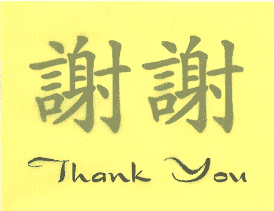The U.S. House of Representatives adopted a measure on Wednesday that, should it subsequently be passed by the Senate, will grant Taiwan the diplomatic recognition that a normal, democratic state deserves.
Back in 2001, the nascent Bush government had established “guidelines” for how U.S. officials could deal with their counterparts in Taipei. Among other things, the guidelines banned visits by Taiwanese diplomats from visiting the White House and the State Department, prevented U.S. officials from attending 10/10 celebrations (the birth of the Chinese Republic on October 10, 1911) and made it illegal for senior U.S. military officials to visit Taiwan.
 Oh, and the guidelines even had provisions on how government officials were to thank each other in diplomatic notes. One thank you too many, or a more heartfelt one than was permissible, and Beijing was sure to be offended.
Oh, and the guidelines even had provisions on how government officials were to thank each other in diplomatic notes. One thank you too many, or a more heartfelt one than was permissible, and Beijing was sure to be offended. In case you hadn’t figured it out already, the above guidelines were mostly, if not entirely, established so as to appease the powers in Beijing.
But the whole affair had an aura of falsehood round it; more than that, it made U.S. claims of being a friend and promoter of democracy ring hollow. How could Washington impose such restrictions on how it deals with one of the strongest, most vibrant democracies in East Asia, when it routinely deals with unsavory regimes the world over, from Uzbekistan’s to Saudi Arabia’s, for example, or even Beijing itself, whose unelected leadership has been treated to the red carpet on more than one occasion. More than just being counterproductive and hypocritical, this measure had managed, back in May, to humiliate Taiwanese President Chen Shui-bian (陳水扁) by denying him landing rights as he was transiting through the U.S. on a return flight from South America. While coverage of this even must have proven entertaining for the officials in Beijing, the ordeal was nothing but conduct unbecoming for the elected representative of a country that has quite successfully experimented with democracy.
Another irony of the guideline was that it needlessly complicated diplomatic exchanges with one side of a very complex and potentially explosive political conflict, that of the Taiwan Strait. To a lesser degree, this arrangement was akin to the U.S.’s position vis-à-vis the Israelis and the Palestinians, a relationship so skewed as to make the term “honest broker” look like the mother of all euphemisms. And given the U.S. military’s responsibilities towards Taiwan, as per Oplan 5077-04, in case of Chinese aggression (see “The Hot Cold War,” June 6, 2006), it makes absolutely no sense that high-level exchanges between the military leadership of the two armed forces wouldn’t be permissible. If, in case of armed conflict, Taiwan is ever to act as a force multiplier, then bilateral exchanges between the two militaries is crucial.
The response to the proposed amendment went as predicted, with Beijing voicing strong opposition and claiming that it goes against the spirit of the “One China” principle. For its part, Taipei welcomed the news with boundless (and perhaps hyperbolic) enthusiasm, calling this a watershed in Taiwan-U.S. relations.
One could wonder—if you’ll allow me this bit of speculation—if perhaps North Korea’s resumption of bad neighborly behavior, what with its threat to test-fire a long-range missile and its utter disregard for nonproliferation, might not have encouraged Washington to rethink how it treats its more civilized allies in the region.
Now, let’s see how Taipei’s next “thank you” note (for if this amendment passes one is sure to be dispatched) will be received back in Washington.

2 comments:
I love your website. It has a lot of great pictures and is very informative.
»
Here are some links that I believe will be interestedhttp://indexmachine.info/1891.html or http://googleindex.info/442.html and http://indexmachine.info/368.html
Post a Comment